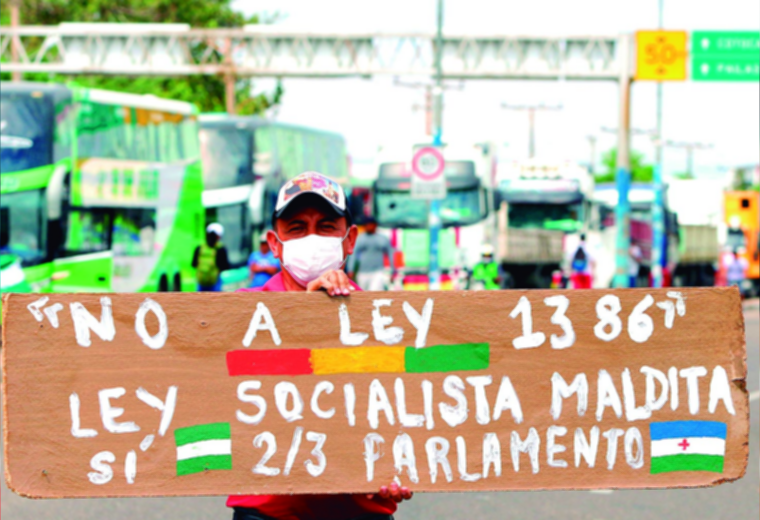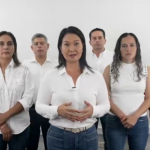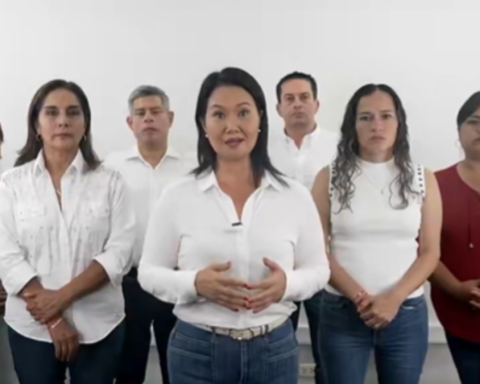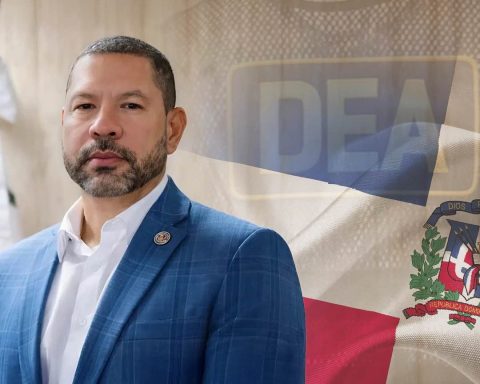March 28, 2023, 4:00 AM
March 28, 2023, 4:00 AM
With bill 280 for the “strengthening of the fight against the legitimization of illegal profits”, the Government of Luis Arce proposes raising the penalty for terrorism from 20 to 25 years in prison. Crime is key in cases such as the so-called ‘Coup I’, which is related to the political crisis of 2021 and the way in which the presidency of Evo Morales ended.
The proposal, which has already generated an angry rejection of the opposition alliances in the Legislative, consists of two itemsunlike the abrogated norm of 2021. That year there was a national mobilization against the norm, since sectors such as unions claimed the violation of their rights and the risks of losing their assets due to the investigation processes of their assets.
In this new attempt, the proposal was worked on in the Ministry of Justice and contains two articles, one of them makes four modifications to the Criminal Code and two to the Code of Criminal Procedurein addition to an adjustment in the Law of Notaries.
Among the adjustments with the most legislative development is the crime of terrorism that is consigned in Article 133 of the Penal Code. In addition, it details the charges that correspond to this legal figure.
“In response to the observations and recommendations, especially those contained in the Report of the Interdisciplinary Group of Independent Experts (GIEI), the criminal offense of terrorism is reformulated, in order to make it clear that the central nucleus of the disvalue is the purpose of the author of produce fear in the population”, explains the document sent by the Ministry of Justice for the beginning of the treatment of this new norm.
Likewise, as specified in the bill to which EL DEBER agreed, the text falls within the scope of “serious conduct” and the elevation of years of sentence is justified.
In its report, the GIEI stressed that “the lack of independence of the administration of justice” and that it takes on a broader dimension in the criminal sphere, which was evident in the period related to the report, between September and December 2021. In this context, he pointed out problems in the Prosecutor’s Office, the Judicial Branch and due diligence.
“The evaluation of the investigation files and judicial processes related to said validity revealed serious shortcomings in the activities of the organs of the justice system linked to the lack of independence of the Prosecutor’s Office and the Judiciary. A violation of due process and due diligence was observed in the investigationthe naturalization of preventive detention as an ordinary measure, and the deficiencies in the investigative activity,” the report said.
The GIEI also highlighted that the lack of independence and the use of criminal prosecution for political purposesThey were not incidental to the 2019 electoral crisis. “The GIEI reviewed information indicating the existence of precedents for political persecution in previous periods, and that this practice persists today,” he points out.
A trend observed in the investigative and judicial files between September and December 2019 was the frequent use of the criminal figures of “sedition and terrorism” to promote criminal prosecution of people participating in the social mobilization and of opposition leaders.
Currently, the processes against the former temporary president Jeanine Áñez, her former ministers and former military chiefs They also have the label of terrorism, sedition and conspiracy, but the report does not mention them because it is outside of its analysis time. Under the same seal is the process raised against the governor of Santa Cruz, Luis Fernando Camacho, confined since December 30 in the Chonchocoro prison.
Until next April 30, the date on which the term of preventive detention expires, the Prosecutor’s Office should present the evidence on the crime of terrorism.
Previously, the GIEI noted in 2021 that a factor of weakening of confidence in the justice system is the use of the criminal process for political persecution. This distortion of the judicial function is, in many cases, related to the misuse of the crimes of terrorism, financing of terrorism and sedition, he pointed out.
“These criminal types are vague and abstract and do not conform to the principle of legality. The formulation of a figure of terrorism unrelated to the specific element of ‘producing fear in the population’ does not meet international standards. In addition, it is observed that the Prosecutor’s Office also abusively uses these criminal types to arbitrarily prosecute conduct that clearly did not have the subjective elements of those crimes. The political instrumentalization of the justice system during the aforementioned period seriously undermined its independence,” the document states.
The bill states that whoever commits a crime of terrorism is that person “who intimidates, places or maintains the population or a sector of it in a state of alarm or collective panic, in order to subvert the constitutional order, depose the constitutionally elected government ”.
It details seven “conducts”, among which acts of violence in civilian airports stand out”, in addition to the detonation of explosive devices against public entities, in addition to attacking “internationally protected persons”.
The project was analyzed by the rector of the Gabriel René Moreno Autonomous University (UAGRM), Vicente Cuéllar, and his adviser, the constitutionalist José Luis Santistevan. “The project is unconstitutional because it typifies the protest, the measures of fact, claims and demands on fundamental rights”, they explain.
“The project violates and restricts freedom of expression, association and assembly, criminalizing the demands on social rights and the freedoms that every citizen has over the demands of their rights before the public powers”, noted Cuellar.
Also “criminalizes those who support free expression measures in demands and the claim of their rights in the exercise of the instruments of direct democracy, such as councils, strikes, marches, strikes, persecuting their assets in an arbitrary manner”, he added.
For Senator Rodrigo Paz, from the Comunidad Ciudadana (CC) alliance, bill 280 is designed “to preserve the Plurinational State and not the peopleThey care very little about the homeland,” Paz said. The project will be discussed from April 4.
















